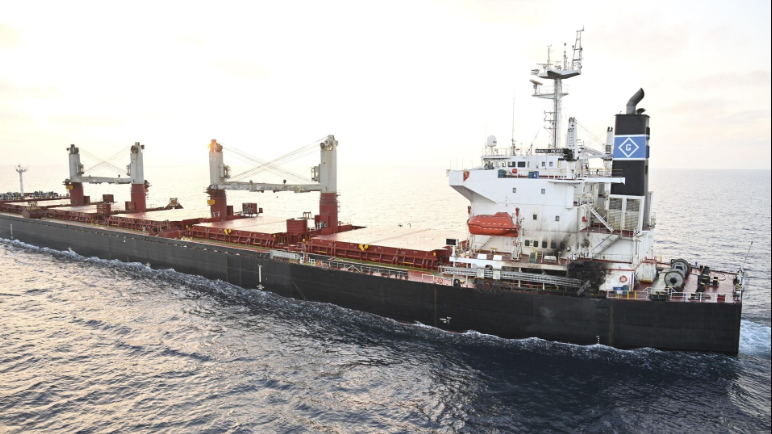The U.S. Maritime Administration (MARAD) has advised U.S.-flagged commercial ships navigating through high-risk areas including the Southern Red Sea, Bab el Mandeb Strait, and the Gulf of Aden, as well as the Strait of Hormuz and surrounding waters to turn off their Automatic Identification System (AIS) transponders to reduce the risk of being targeted, especially in areas where the threat from Houthi forces is most significant.
MARAD issued the advisory in response to escalating regional conflicts in the Middle East to enhances previous guidelines for U.S.-flagged commercial ships navigating through high-risk areas.
The new guidance, which replaces a previous advisory, comes in response to the volatile maritime security situation in the region from a combination of Houthi attacks from Yemen, the resurgence of Somali piracy, and aggressive actions by Iran that are affecting international shipping lanes critical to the global economy.
Since November, the Houthi terrorist group has targeted dozens of ships with perceived affiliations with Israel, the U.S., and the UK in support of Palestinians in Gaza. In addition to threats from the Houthis and Somali piracy, the advisory also covers risks from Iranian forces in the Persian Gulf, Strait of Hormuz, Gulf of Oman, and Arabian Sea.
MARAD’s advisory enumerates several incidents from the past year alone, including the April 2023 Iranian seizure of the Marshall Islands-flagged tanker, Suez Rajan, in the Gulf of Oman. The vessel, renamed St. Nikolas, was seized again in the Arabian Sea in January 2024.
“Iranian forces have utilized small boats and helicopters during boarding operations and have attempted to force commercial vessels into Iranian territorial waters,” MARAD said.
The MARAD advisory recommends that vessels affirm their adherence to international law if approached by Iranian forces and to remain as far from Iran’s territorial waters as possible without compromising navigational safety.
Piracy also continues to be a persistent threat to shipping, with recent incidents of boardings and hijackings in the Gulf of Aden, Arabian Sea, and Indian Ocean, including the hijackings of the commercial ships Ruen and Abdullah.
The advisory recommends adherence to the Best Management Practices to Deter Piracy and consulting the Maritime Global Security website for pre-operation guidance.
The advisory also warns about unmanned aerial vehicles (UAVs) and limpet mines that pose a threat to commercial ships in areas including the Persian Gulf, Strait of Hormuz, Gulf of Oman, and Arabian Sea. Crewmembers are advised to relocate to a safe space on the vessel if a UAV is suspected. Limpet mines, which can be attached to vessel hulls, have been used to damage commercial ships in recent years.
The advisory emphasises the importance of vigilance and the implementation of security measures onboard, including maintaining a proper lookout, preparing for emergency responses, and adhering to U.S. Coast Guard guidelines for operating in high-risk waters.
